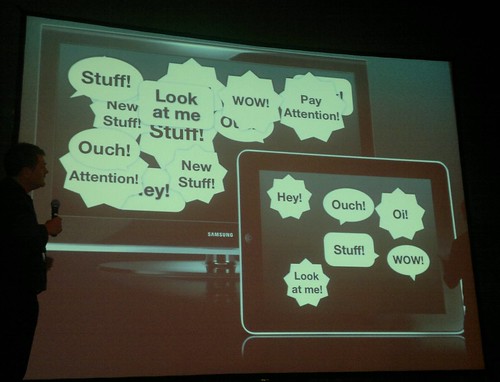 |
| Wearing sunglasses indoors DOES make you cool. The coffee is irrelevant. |
I work in a treatment clinic for teenage children. Our rule there is that, unless you are 18, you may have no coffee. If you are 17 and behave well… well, thanks for the cooperation, but you still get no coffee. My superiors are in general agreement with what seems like an almost heavenly decree: children do not get coffee.
The word “weird” falls beyond short of giving a description of my adolescent personality. For my sixth Christmas, my parents, in their fathomless wisdom, spoiled me as their beloved only child with a candy-apple-red Power Wheels Jeep. The only game I ever played in it was “Jurassic Park”, a game in which my freakishly tall best friend and I captured “dinosaurs” (plastic horseshoes) from Isla Nublar and pitted them against one another in Thunderdome-esque combat. I drove the Jeep because his knees couldn’t fit in the doors. Sometimes it really is surprising where children derive an air of superiority, mine being my lack of height in this case and the subsequent God-given ability to drive a toy Jeep. It could be totally possible that this was my first real taste at developing a sense of entitlement.
Entitlement, at least from the point of view of my already fractured long-term memory, is what first drove me to drinking coffee. To a young teen, nothing is manlier than coffee consumption. Alcohol was portrayed in school as cold, liquid delinquency in a bottle, and the words “drug use” could have been followed by an equal sign (=) and “baby murder” and still conveyed the exact same point that our counselors got across to us through more subtle means. But coffee was where the real masculinity was. There were no written laws against coffee consumption, nor were there true consequences for buying it. Kids just didn’t. “They” didn’t, “you” didn’t, “we” didn’t.
But I did. Eventually.
The word “cool” also doesn’t describe my childhood. Maybe “anti-cool” would do the trick. Definitely not cool. I approached coffee in the way that a first-time homeowner might approach purchasing a lawnmower: I have no attractive yard because I have no lawnmower, and therefore need a lawnmower to achieve maximum yardage. Coffee was my lawnmower, albeit in a sense of its perceived absolute need in order to find a doorway to “coolness”. Pokemon, band class, and Mystery Science Theater 3000 fulfilled the same roles as football, toilet humor, and girlfriends did for other malefolk my age. Society tends to favor the latter traits in rearing male children of merit (for some odd reason), and it took me a long time to notice that I lacked any sort of “valuable” social currency. Once I had, though, the feeling of inferiority slammed hard.
The killer app I needed was coffee. None of the sporty guys dared to touch it, for fear that they may taint the All-American path that their parents had put them on, nor did the wealthier and well-connected kids for fear of their parents withdrawing their privileged incentives in retribution for disobeying the all-encompassing Coffee Law. I, however, was under the impression that because I studied for school, played guitar, and worked hard at a real job that I needed (Nay! Deserved!) to be respected. So I purchased coffee.
Humankind may never fully understand why the tastebuds of those under 18 are different from those belonging to the over 18 crowd. All I know is that coffee tastes pretty crappy the first time one drinks it. For me even, it was pretty crappy the second time. But I persevered, and eventually I learned to adore the taste of coffee.
Black.
Flavored.
With chai (my personal favorite).
Pressed or drip.
I learned to enjoy it for what it really was: consumable art made by oftentimes quirky, weird, and, by Society’s standards, pretty uncool people with a passion for sharing the joy of coffee.
Nobody really cares about their peers’ drinking habits during adolescence. I’m glad our teenage years end, though. That’s when we tend to realize that our shoes are our shoes and that walking a mile or two in them makes us pretty cool. Or at least cool in a way that nobody else is cool. We tend to call that quirkiness. I dig quirkiness. Maybe you do, too.
I hope the teens under my care at work come to that same conclusion. Until then, I’ll continue to derive a sense of schadenfreude at their excuses for why they deserve coffee. I’ll keep saying no, because hey, children do not get coffee.
Be You.
Troy






